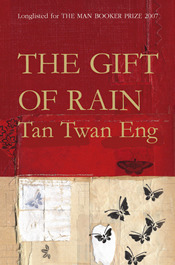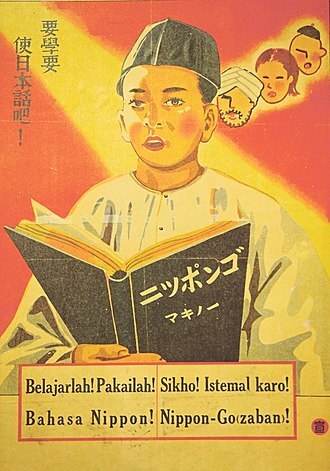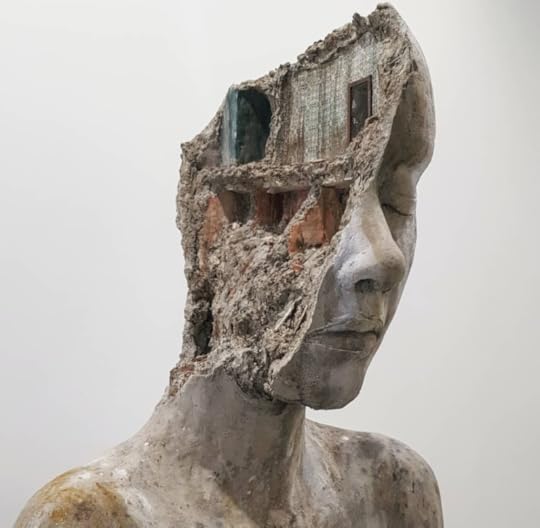What do you think?
Rate this book


447 pages, Paperback
First published January 1, 2007
"Like the rain, I had brought tragedy into many people's lives but, more often than not, rain also brings relief, clarity, and renewal. It washes away our pain and prepares us for another day, and even another life. Now that I am old I find that the rains follow me and give me comfort, like the spirits of all the people I have ever known and loved."






" I had waited so long for all of it to come out: the guilt, the regrets, the darkness that had filled my days for such an eternity.It was as though his satori was waiting all these years for this meeting with Michiko to happen. Yes, it was destiny. She had come to find Endu-san's final resting place and to deliver a package. She needed Philip's memories to conclude her own life story.
"Some mistakes can be so great, so grievous, that we end up paying for them again and again, all our lives until eventually we forget why we began paying in the first place.
"You were growing up as a child of mixed parentage in this place. But that is your strength. Accept the fact that you are different, that you are of two worlds. And I wish you to remember this when you feel you cannot go on: you are used to the duality of life. You have the ability to bring all of life’s disparate elements into a cohesive whole. So use it.”The discipline and skills Endo-san would teach him through aikido would prepare him for the journey through the Japanese occupation of Penang, and the role Philip would play in it.
“I was born with the gift of rain, an ancient soothsayer in an even more ancient temple once told me. "Almost at the end of his life, sharing his memories, can he finally come to terms with his guilt, betrayal, destroyed loyalties, and the real meaning of love and forgiveness.
She said:" Your life will be abundant with wealth and success. But life will test you greatly. Remember—the rain also brings the flood.”
"Memories—they are all the aged have. The young have hopes and dreams, while the old hold the remains of them in their hands and wonder what has happened to their lives."Michiko's arrival brought back the meaning of his destiny though different lifetimes. Where his mind faltered, his heart took over to finally make sense of everything that has happened. After all, his body was old, and could not save him anymore from the life and memories he had to face on his own, for more than fifty years.
"The mind forgets, but the heart will always remember. And what is the heart’s memory but love itself?”Michiko came to hear the tale about his family, his friends, his county, his loyalty, his involvement in their fate, through the language of his heart, and not his mind. Where did duty gone so terribly wrong?
“Duty is a concept created by emperors and generals to deceive us into performing their will. Be wary when duty speaks, for it often masks the voice of others. Others who do not have your interests at heart.”Mirakama needed his story to fulfill her own destiny. Philip needed someone to listen; to finally lead him to his satorial moment of closure.
“That is what growing old consists of, mostly. One starts giving away items and belongings until only the memories are left. In the end, what else do we really require?”For Philip Hutton to become Philip Arminius Khoo-Hutton, he had to travel over continents of time and across a landscape of horrific memories to reach the moment in his life when his name finally made sense to him.
"The road was lined with magnificent homes dating back to the 1920s. Many had been demolished, but in the geography of my memory I saw them every day, entire, complete, standing proudly in a row. And in my memory I recalled the people who had lived there, who had passed through those homes; the scandals and the tragedies of their lives."For Philip Hutton, present is a scar of the past. In his old age, he can only open his eyes inward and relive his past, a past which has been witness to both great happiness and great loss for him. As an active and controversial participant of the World War II in Malaya, he was forced by circumstances to get involved in a whirlpool of events which took away his liberty of doing what was morally correct, but pushed him to do whatever it took to protect his family.
"Some mistakes can be so great, so grievous, that we end up paying for them again and again, all our lives until eventually we forget why we began paying in the first place".When he meets Endo-san, his Japanese neighbor, he feels there is a strange connection between them. He becomes his pupil although the association with Japanese was not seen with good eyes and step by step he begins to realize that they are kindred spirits that have known each-other for several lives and have shared experiences that shaped the course of their current life. He is also reluctant to believe that our lives are predestined and no matter what decisions we make, the outcome is the same. It is hard for him to accept that the concept of free will is just an imagined attribute Western people think they have. In the end however, this belief is the only thing that helps him live within the three walls of his prison: anger, sorrow and guilt. It's this belief that helps him cope with the death of the members of his family: Isabel, his 2 brothers, his father.
"To have the awareness that there is a greater power directing our destinies must give great comfort. It would give a sense of meaning to our lives, knowing that we are not running around vainly like mice in a maize".His relation with Endo-san is one of a kind: it transcends history and it escapes time. They know each other so well that they can communicate their thoughts to each other without words as though they are part of the same brain. Their silences express a multitude of meanings to each other and can bring both relief and unthinkable grief. Philip learns from Endo-San to fight and to meditate and he models his strength through his lessons, his capacity of dealing with the world's hatred and love. He trusts him even when he hates him, he finds his strength in him, he accepts his betrayal and understands his motives before getting any explanation. He doubts his friend, but his love for him and his confidence in him is a lot stronger than his doubt and fortifies him to go on and on even when life seems to be devastating every bit of his spiritual power. He respects his friend's high sense of justice even when his actions are hard to digest.